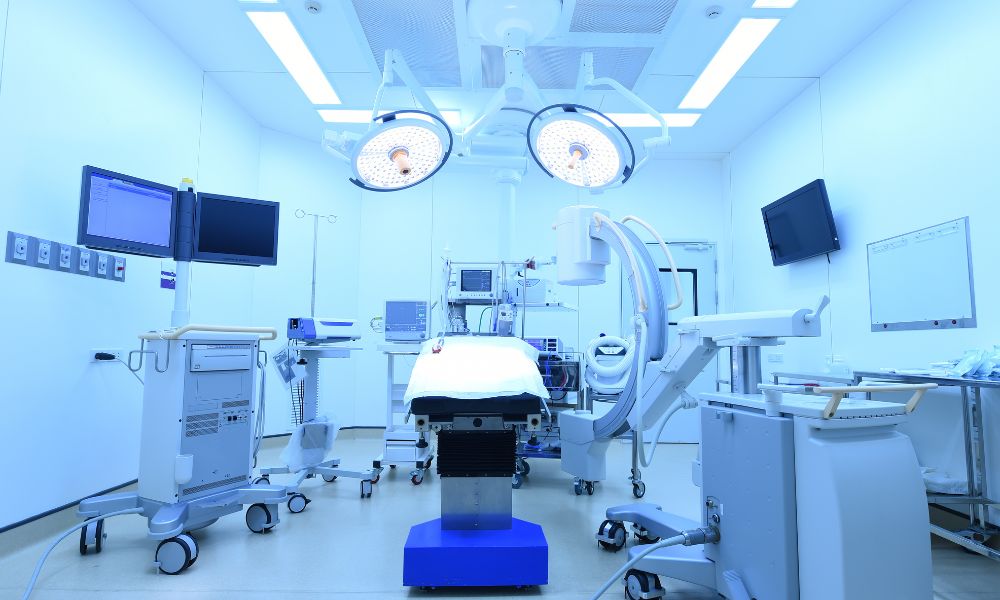In the rapidly evolving landscape of healthcare, the role of medical devices has become increasingly pivotal. These technological marvels play a crucial role in diagnosis, treatment, and patient care. As we delve into the realm of medical devices, it’s evident that innovation is steering the industry towards new horizons, offering unprecedented advancements that are revolutionizing healthcare delivery.
The Evolution of Medical Devices
Medical devices have come a long way from their humble beginnings. Historically, devices were primarily focused on basic functionalities, such as thermometers and stethoscopes. However, with the advent of cutting-edge technologies, the scope of medical devices has expanded exponentially. The integration of electronics, artificial intelligence (AI), and connectivity has transformed these devices into sophisticated tools that enhance precision, efficiency, and patient outcomes.
Connected Healthcare: The Internet of Medical Things (IoMT)
One of the most transformative trends in the medical device industry is the rise of the Internet of Medical Things (IoMT). This interconnected network of medical devices and applications facilitates real-time monitoring, data collection, and analysis. From wearable fitness trackers to implantable devices, IoMT is creating a seamless flow of information between patients, healthcare providers, and devices, leading to more personalized and efficient healthcare solutions.
Artificial Intelligence in Medical Devices
Artificial intelligence (AI) is a game-changer in the field of medical devices. Machine learning algorithms are enabling devices to analyze vast amounts of data quickly and accurately, providing healthcare professionals with valuable insights for diagnosis and treatment planning. AI-powered imaging devices, for instance, can detect abnormalities in medical scans with unparalleled precision, leading to early detection of diseases and improved patient outcomes.
Precision Medicine: Tailoring Treatment with Medical Devices
The concept of precision medicine is gaining momentum, and medical devices are at the forefront of this revolutionary approach to healthcare. Devices that allow for personalized treatment plans based on an individual’s genetic makeup, lifestyle, and specific health indicators are paving the way for more effective and targeted interventions. From smart insulin pumps for diabetes management to genetic testing devices, precision medicine is reshaping how we approach healthcare on an individual level.
Implantable Medical Devices: Merging Man and Machine
Advancements in material science and miniaturization have given rise to a new era of implantable medical devices. These devices, ranging from pacemakers to neural implants, are enhancing the quality of life for individuals with chronic conditions. The seamless integration of these devices with the human body not only ensures continuous monitoring and treatment but also opens up possibilities for restoring lost functionalities.
Challenges and Regulatory Landscape
While the future of medical devices holds immense promise, it is not without its challenges. The increasing complexity of these devices raises concerns about data security and patient privacy. Additionally, the regulatory landscape is evolving to keep pace with technological advancements, ensuring the safety and efficacy of these innovations. Striking a balance between fostering innovation and safeguarding patient well-being is crucial for the sustainable growth of the medical device industry.
The Role of Medical Devices in Remote Healthcare
The global shift towards telemedicine and remote healthcare services has been accelerated by the ongoing global challenges, such as the COVID-19 pandemic. Medical devices are playing a pivotal role in enabling remote patient monitoring, virtual consultations, and the delivery of healthcare services at a distance. From wearable health trackers to remote monitoring devices, these technologies are breaking down geographical barriers and improving access to healthcare for individuals worldwide.
Future Trends and Innovations
As we look ahead, the future of medical devices appears to be even more exciting. Emerging technologies such as 5G connectivity, nanotechnology, and robotics are poised to further revolutionize the capabilities of medical devices. Nanoscale devices could revolutionize drug delivery, while robotic-assisted surgery systems promise enhanced precision and reduced invasiveness. The intersection of these technologies is opening up possibilities that were once thought to be confined to the realm of science fiction.
Conclusion
Medical devices have transcended their conventional roles and are now indispensable tools in the modern healthcare landscape. The convergence of connectivity, artificial intelligence, and precision medicine is ushering in a new era of patient-centric care. As the industry continues to innovate, addressing challenges and navigating regulatory frameworks will be crucial. The transformative power of medical devices is not only shaping the future of healthcare but also improving the quality of life for individuals around the world. As we embrace these technological advancements, we must also remain vigilant in ensuring that the ethical and regulatory dimensions of this transformative journey are given due consideration. The journey of medical devices from mere instruments to indispensable healthcare companions is an inspiring testament to the potential of human ingenuity in advancing the well-being of society.




